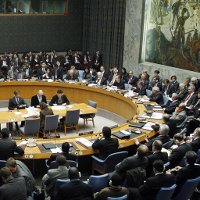Copenhagen Summit: UN Intergovernmental Panel's Objectivity Is Questioned
The smooth run-up to the conference has been upset by a row over the publication of about a thousand e-mails sent by and to the Climatic Research Unit at the University of East Anglia which appear to suggest a deliberate attempt to skew the science of global warming.

In his opening address to the conference, Dr Rajendra Pachauri, chairman of the UN's Intergovernmental Panel on Climate Change (IPCC), mounted a passionate defence of the organisation's integrity and and objectivity in the face of the Climategate assault , Times Online reports .
It was also reported, UN climate convention head Yvo de Boer expressed optimism about cutting greenhouse gas emissions.
"Never in 17 years of climate negotiations have so many different countries made so many pledges," he told the BBC.
Mr de Boer said offers of finance for clean technology for poor countries were also coming through and that talks were progressing on a long-term vision of massive carbon cuts by 2050.
At the deal's heart must be a settlement between the rich world and the developing world
On Monday, South Africa became the latest country to make an offer - saying it would cut by one-third the growth of its carbon emissions over the next decade, subject to getting more funding and technological help from wealthier countries, BBC News reports.
Meanwhile, more than two years ago the Intergovernmental Panel on Climate Change (IPCC), after conducting a five-year review of research from around the world, concluded that evidence for warming of the climate was “unequivocal” and that the changes were more than 90 per cent likely to be the result of human actions.
Since the industrial revolution, humans have been putting ever more carbon dioxide (CO2) and other greenhouse gases into the atmosphere, through burning fossil fuels in power plants and cars, boats and planes, as well as through industrial processes such as cement making and by cutting down forests, growing crops and rearing livestock. These gases trap more of the sun’s heat and prevent it escaping into space. It’s a totally natural process which has remained balanced for hundreds of thousands of years - but the climate change scientists argue that humans are now upsetting that balance by putting more such gases in the atmosphere, trapping more energy and pushing temperatures up, Telegraph.co.uk reports.
Subscribe to Pravda.Ru Telegram channel, Facebook, RSS!





